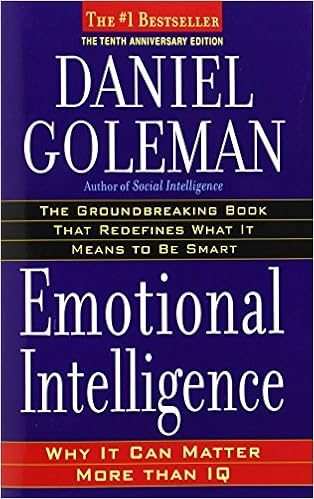I was inspired to read this book after reading Daniel Goleman and the Dalai Lama's "A Force For Good".
Like Howard Gardner's "Frames of Mind", the first few chapters are very technically oriented, talking about the frontal cortex and the amygdala, and their respective roles in regulating emotional hijacking. Goleman references Gardner's accomplishments and research in multiple intelligence, which I thought was pretty cool given that I hadn't thought of a connection between the two authors.
Goleman talks about mastering one's emotions by understanding the thought processes that go into why we respond the way that we respond to things, and to accept that it's okay to feel a certain way but to really reconsider our reactions. He talks about conflict resolution through empathy and managing our emotions.
He talks about how trauma affects people, and how temperament is not destiny. He postulates that emotional intelligence can be learned and developed.
Throughout the book he talks about different scenarios - work, relationships, health, and finally education, and the benefit of developing one's emotional intelligence and the positive effects on each facet.
This book was part educational and part self-help, and reading it, everything seems logical and obvious.
I would love to revisit this book again later. There's a lot to take away from it.

No comments:
Post a Comment